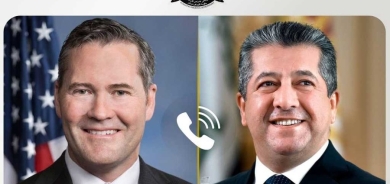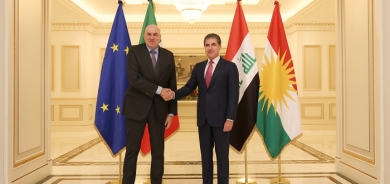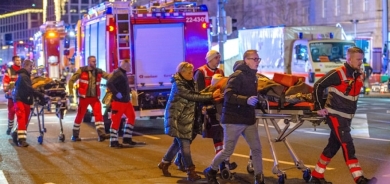EXPECTATIONS FOR 2011

The Kurds must remain vigilant in defense of the Iraqi constitution and their hard-won, God-given democratic rights to autonomy. Fortunately KRG President Massoud Barzani has repeatedly recognized the need for the Kurds to defend the constitution. Barzani also recently renewed his claim that the Kurds had the right of self-determination. Does this imply independence in the future? Jalal Talabani, in his continuing role as Iraqi President, maintains a steady trusty hand over the Iraqi ship of state that is seen as fair and benevolent by all Iraqis. And as a Kurd, Talabani can be expected to watch over and protect legitimate Kurdish interests. However, what will be the future of the current KRG Prime Minister Barham Salih? With the decline of his PUK, the KDP may decide to return his important position to Nechirvan Idris Barzani who was prime minister from 2005-2009. And what of the future of Gorran? Will it hurt Kurdish unity against Baghdad or is it already in decline. 2011 will tell.
More specifically, in the coming year, the KRG will look forward to implementing a hydrocarbon law for Iraq that allows the Kurds to exercise their legitimate sovereign rights over this valuable resource. However, Hussein al-Shahristani’s promotion to be deputy prime minister with responsibility for the entire energy sector may bode ill for the Kurds’ hopes to use their oil resources as they see fit. In his previous role as Iraq’s Oil Minister, al-Shahristani took a hardline against the KRG’s attempts to assert sovereignty over its own oil resources and became one of the Kurds’ most important enemies. Now he will be even more powerful. How will he use this power in 2011? Just last week Baghdad announced that it would reduce the KRG’s share of federal revenues if it fails to produce oil for export next year. This said, even if the KRG wins important concessions on the usage of its oil, it will then be up to the KRG leadership to use their oil revenues wisely for all the citizens of Kurdistan and not suffer from the rentier state oil curse so many other rich oil states have.
In addition, of course, Article 140 of the Iraqi constitution and the future of Kirkuk remain for 2011 to grapple with. The Kurds will have to compromise on this issue, but this does not mean surrender! The Iraqi Arabs and Turkmen will also have to compromise.
2011 will demand attention to many other issues. How will the U.S. role as the KRG’s ultimate guarantor play out with the United States scheduled to pull out its remaining combat troops from Iraq by the end of the coming new year? Will the KRG’s neighbors take this as their signal to descend upon the Kurds again? My expectation is that the United States will continue to guarantee the KRG existence so long as the KRG continues to exercise moderation in its approach to the new year’s issues and problems. However, the United States has abandoned the Kurds before and is already over extended by its own economic problems and military commitments in Afghanistan. As recently as December 2006, the U.S. Baker-Hamilton Report called for recentralizing Iraq at the expense of the KRG.
Important too will be the developing role of Turkey as the KRG’s most important neighbor. There are currently 1,000 Turkish businesspeople and more than 5,000 Turkish employees in the Erbil region alone. Banking products and services remain insufficient. Turkish state-run Vakifbank is expected to open an enhanced regional branch in Erbil by the beginning of the new year and hopefully begin providing some of these much-needed services. More banking developments, however, are clearly in order for the future if the KRG is to continue its economic growth.
The Kurds in Turkey, of course, have their own all-important expectations for 2011. National parliamentary elections are scheduled for June 2011. If Prime Minister Recep Tayyip Erdogan’s AKP wins a new mandate, as seems likely, will Turkey be able to write a new, more democratic constitution that will help it solve its continuing Kurdish problem as promised? Turkish-KRG relations cannot progress without Turkey making strides toward solving its own Kurdish problem.
Also will 2011 see Turkey break its EU logjam and renew its drive for ultimate EU membership? As Turkey draws closer to the EU, the KRG will also draw closer to Europe since Turkey shares a border with the KRG. Is it too much to envision that someday the KRG will actually become part of a larger Europe? If this should occur, democracy and economic prosperity will be greatly enhanced for the Kurds.
Based on these speculations, the Kurds can cautiously look forward to a successful new year!
Professor Dr. Michael M. Gunter
Tennessee Technological University/USA &
The International University/Vienna, Austria
Professor Gunter recently published a much-expanded
and updated edition of his Historical Dictionary of the
Kurds (Lanham, MD: Scarecrow Press, 2011).

 Michael Gunter
Michael Gunter







